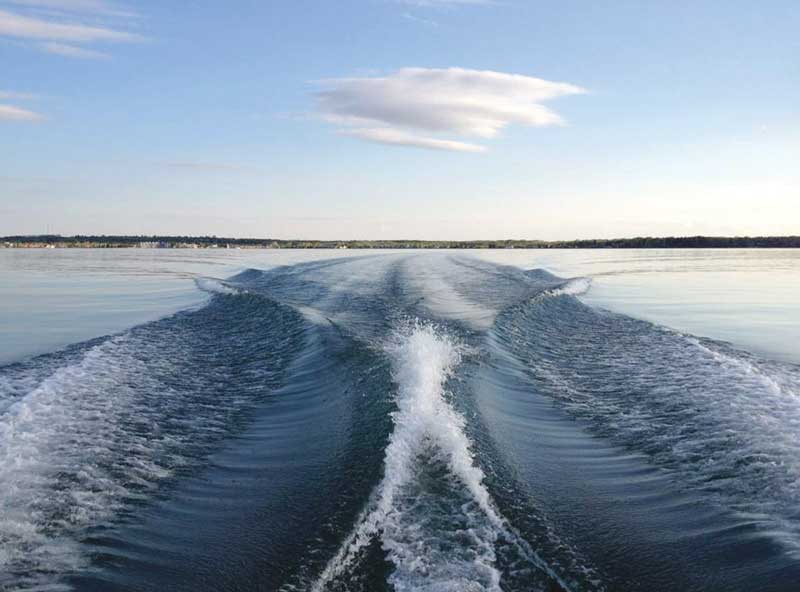Have you ever had your boat slam hard against a dock because of a passing boat’s wake? Have you ever witnessed a boat decelerating from 30 to six knots just as it reached the six-knot wake zone, with its big wake following? Have you ever yelled “slow down” at someone who was ignoring a no-wake zone?

We reached out to Ted Sensenbrenner at BoatU.S. Foundation to ask about wake safety and etiquette. He said, “There’s a difference between the enforceable rules, such as maintaining a proper lookout and maintaining a proper speed, and etiquette. For example, on your way to the six-knot zone, treat it like a yellow light in traffic and begin slowing before you get there. Adjust the throttle and speed prior to the buoy so that it’s not so abrupt.”
Because you are responsible for your boat’s wake, Sensenbrenner says, “You’ve got to know your own boat. We see it all the time—people think they’re going a ‘no-wake’ speed but they’re throwing quite a wake out there.”
He recommends the Water Sports Industry Association’s “Wake Responsibly” campaign, promoting these concepts in relation to wake: stay at least 200 feet away from shoreline, docks, or other structures (this includes the skier at the end of your 75-foot tow rope) and minimize repetitive passes (once you’ve run the same line for a while, move on to a new area).
Sensenbrenner notes that the number one contributor to boating accidents is operator inattention. He recommends a scanning technique looking left, right, forward, and behind you, including looking at your wake. Remember the acronym SCAN: Search, Concentrate, Analyze, and Negotiate or Navigate. He adds several more tips:
- If you’re new to boating, get a handle on how your boat handles before towing anyone.
- Boats handle differently when water ballast is added or the drag of a skier is applied.
- Have passengers remain seated, especially those seated in front of the operator.
- The operator should call out when they are turning the boat (so passengers know ahead of time).
- As the operator of the boat, you are responsible—don’t give into peer pressure to go faster/turn harder.
- Leave alcohol out of the equation. It impairs judgment and leads to distraction, and that goes for all aboard.
To learn more about WSIA, click to wsia.net. To learn more about BoatUS safety courses, click to boatus.org. Other boating resources: dnr.maryland.gov/boating and safeboatingcouncil.org.